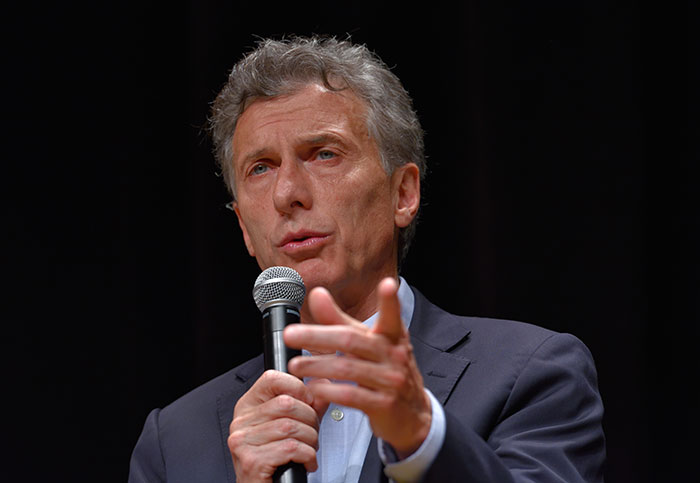web_mauriciomarci_shutterstock_349711475.jpg

Argentinian president Mauricio Macri's reform programme has captured the imagination of investors, who are now much more enthusiastic about the future of the country's economy.
The government has already accumulated billions in dollar-denominated debt after returning to the international bond market last year with one of the largest debt sales from an emerging market on record, worth $16.5bn.
This latest debt sale evidences investors’ enthusiasm for president Mauricio Macri’s economic reform programme. Plenty were willing to take on debt that doesn’t mature for a century, despite Argentina’s history of spectacular default, including a failure to pay just last year.
Finance minister Luis Caputo said the issuance was only possible because the country had regained credibility.
“We are closer to countries like Belgium or Mexico [both of which have issued 100-year bonds] than Venezuela... It is a hallmark of confidence not only in this administration but also in the future of the country,” he continued.
The arrival of pro-market president Macri in 2015 marked the end of 12-years of left-of-centre rule in Argentina and also of the country’s status as a financial pariah.
Argentina had been locked out of capital markets for more than a decade after defaulting on $90bn worth of debt, sparking a stand-off between creditors and the country’s previous administrations that lasted until Macri’s inauguration.
Macri also devalued the currency, reduced the public sector payroll, cut subsidies and moved to attract more foreign direct investment in a reform package that has proven popular with global institutions like the International Monetary Fund and investors.
The president’s reforms have seen the economy exit recession and are helping to dampen high inflation.
“There is still quite a lot of enthusiasm out there for president Macri to deliver further reforms, particularly on the fiscal front,” noted Edward Glossop, Latin America economist at analyst firm Capital Economics.
A number of investors had voiced their interest in a much longer term debt sale from the country.
If Macri is successful in implementing further reforms, and the economy continues to improve, it is expected demand for Argentine debt will increase and yields will fall as time goes on.
However, Glossop warned that the president might find it difficult to implement further austerity measures after legislative elections in October, especially if he fails to at least maintain his current slim majority in the country’s congress.
Yields on the bonds, at 7.9%, while higher than most other century bonds, were in fact lower than expected considering the continued risk of default and the country’s high levels of dollar-denominated debt, which leaves the country exposed to currency fluctuations.













